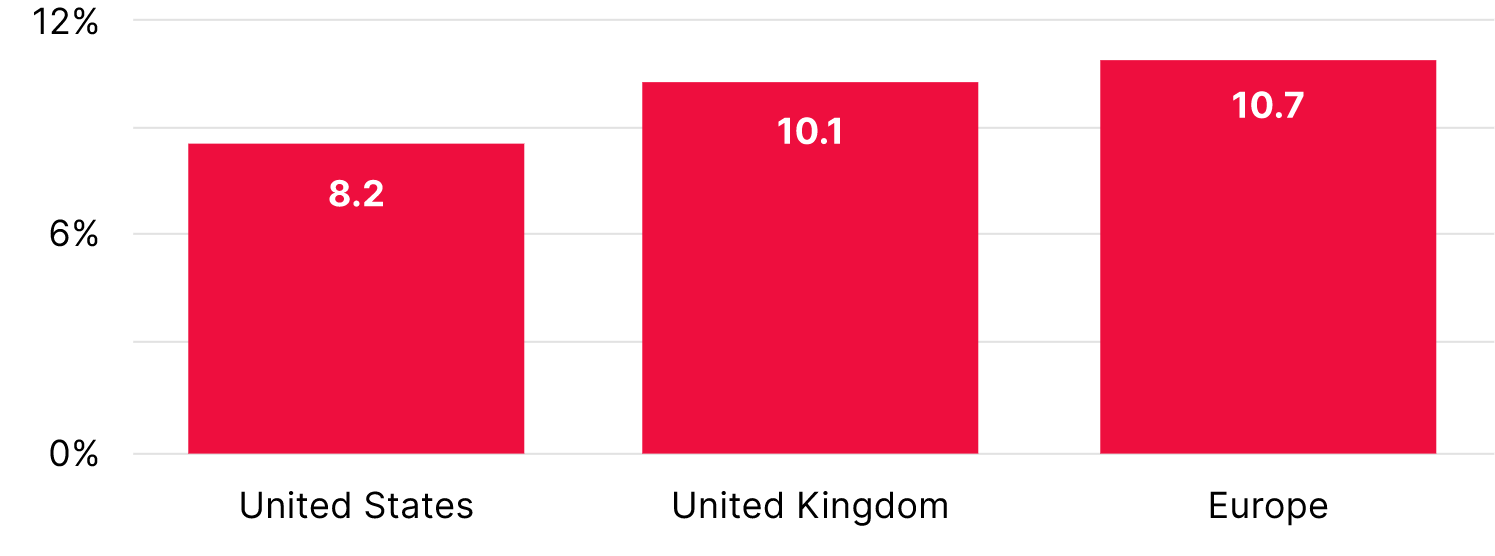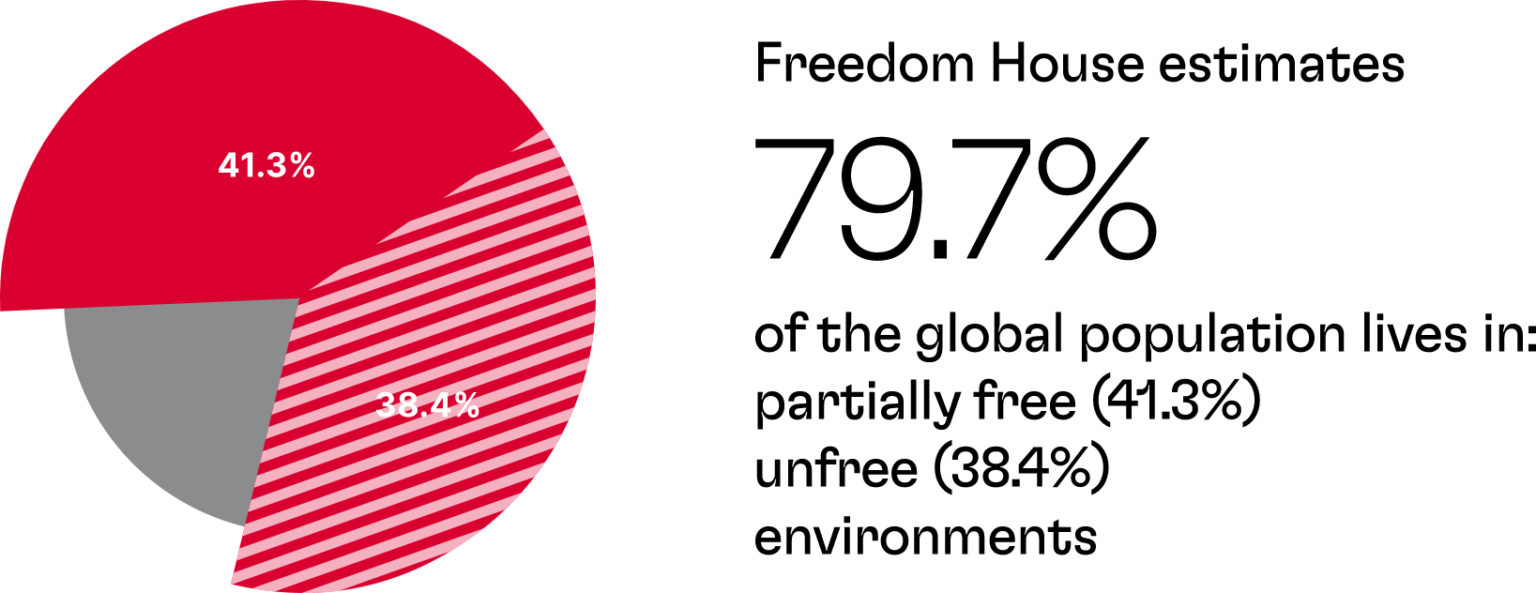01
Security in a post-COVID-19 world
Nearly three years on from the outbreak of COVID-19, many populations are dissatisfied with their governments’ handling of the pandemic. February 2022 brought with it a further global crisis: fuel and food shortages triggered by the Russian invasion of Ukraine.
Due to the massive outflow of Ukrainian refugees (7.8 million) and fear of further Russian provocations, legislation was implemented in several countries bordering the affected regions, limiting movement and increasing border security.
Anti-government sentiment has been building globally, brought about by the shortages and price hikes, compounded by hyperinflation thanks to COVID-19’s effect on the global economy. Some countries have used the pandemic to launch crackdowns on freedom of movement, assembly and privacy rights.
Inflation September 2022

Source: Trading Economics
Mechanisms employed for control during the COVID-19 pandemic have become normalised in countries where representative government is fragile or non-existent, as there is no electoral accountability for such authorities.
Protest movements, military coups, goods and food shortages and major industrial actions have proliferated, increasing instability globally. Decreased stability, increased securitisation and de-democratisation creates unsafe and unaccountable governments.
The worrying turn only appears to be increasing as shortages and hyperinflation continue across the globe.

Source: Freedom House
By Indi Phillips

